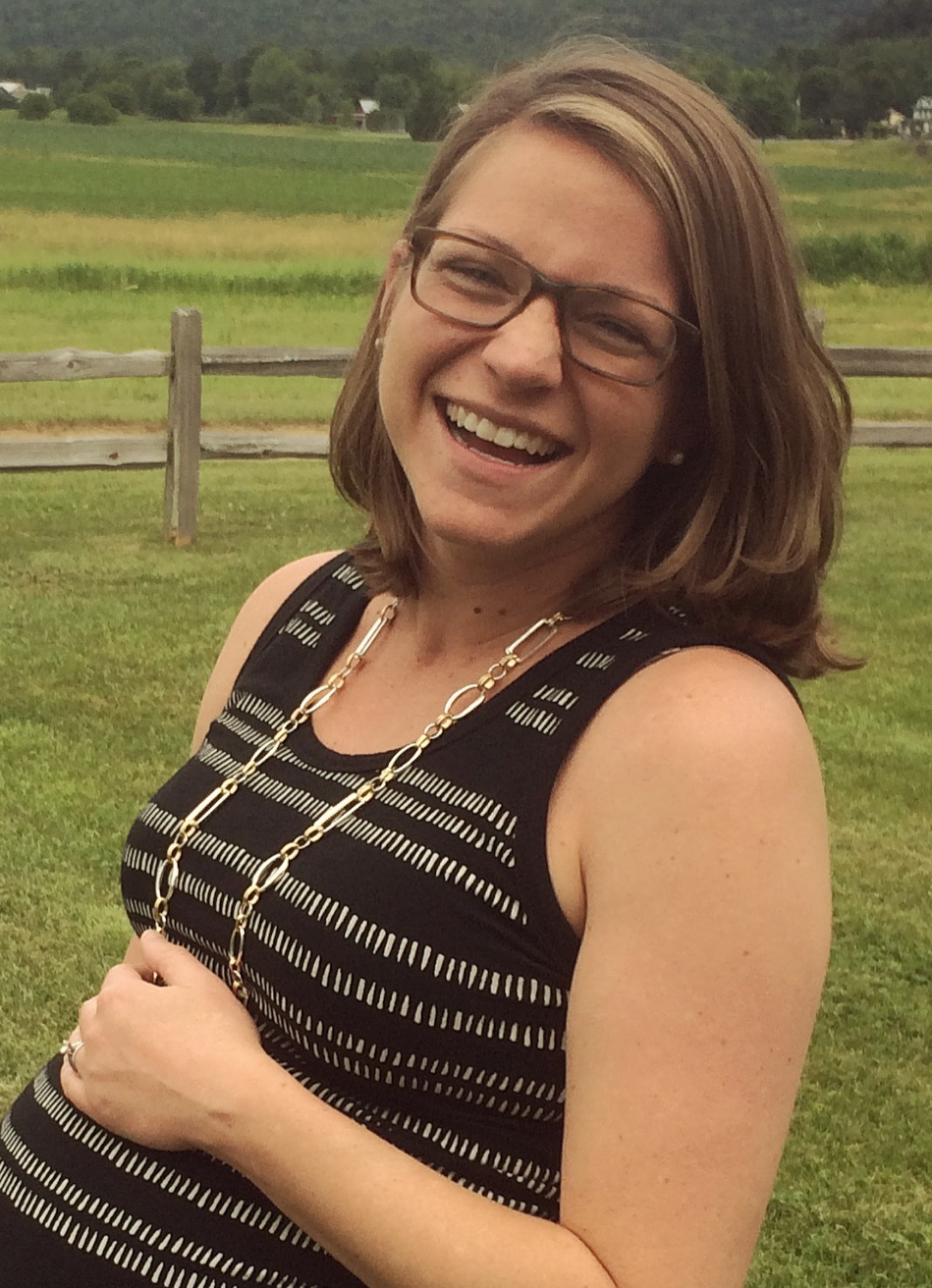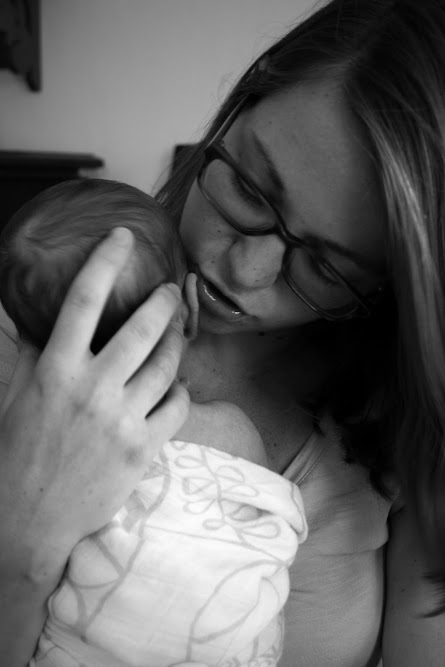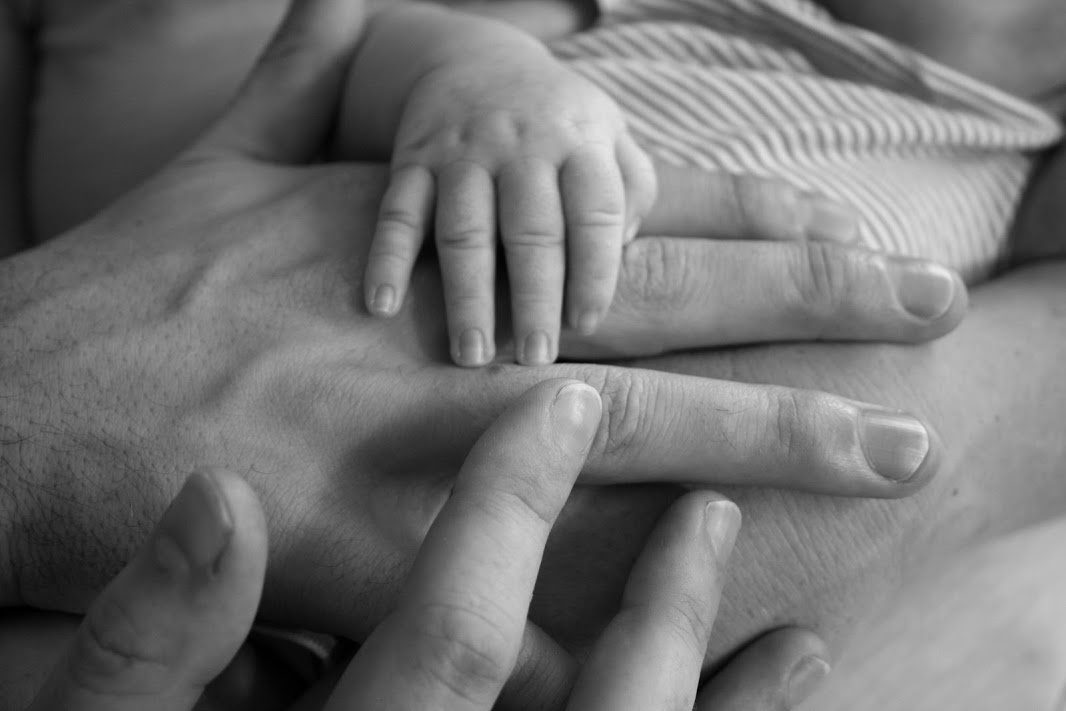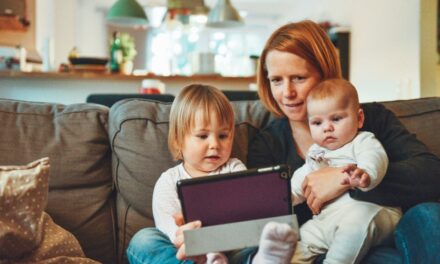 “It must be great having your body back, huh?” she asks me.
“It must be great having your body back, huh?” she asks me.
Eight days after my ten-pound, six-ounce daughter emerged from my womb under the dim lights of the delivery room, my aunt sits in my living room, visiting from a few hours away, and voices the question. I nestle the baby into my chest, shifting my weight to get comfortable in the chair I’ve been nursing her in all day. “Umm… yeah, I guess,” I reply half-heartedly, not quite sure what to say.
The truth is that in part, she’s right. For the past several months the thought grew and grew in me, as persistent and ever-present as my baby’s kicks and rolls inside my womb: I can’t wait to have my body back. I didn’t mean it in a weight-loss sort of way – it was just that, grateful as I was for a healthy pregnancy, I was ready to feel like my body was mine again, not wholly inhabited, taken over, by some tiny being I loved and knew so intimately yet who still felt so foreign to me.
And it’s right, in a sense, what my aunt says. Now eleven days post-partum, I can see the bones in my feet again, after months of swelling and summer heat made me doubt they were still there at all. I’m not running to the bathroom every half hour, I can sleep on my back or my stomach if I want to, and heartburn and nausea don’t keep me up at night, restless and tired all at once. There are, indeed, great things on this side of pregnancy: uncooked deli meats! Sips of summer beers my husband stashed away for me months ago in the fridge! Aioli and soft cheeses, the ability to touch my toes, and no longer being the subject of stares due to my watermelon-sized belly any time I go out in public.
But on the other hand – my body still isn’t really mine at all.
The Sunday readings this time of year situate us right in the middle of the “Bread of Life Discourse” (John 6:22-59), in which Jesus, after feeding the 5,000, teaches his disciples that his flesh is true food, and his blood true drink, given for the life of the world. As I stood in the back of the church at Mass last weekend, my daughter sleeping against my chest, the words of the gospel text began to take on new meaning for me. Looking down at the newest member of our family, I pondered the ways in which caring for this little life might be a quiet invitation to enter more deeply into the Eucharistic life – to offer my own body for the life of another.
 My body is mine again in a sense, but it’s also not mine at all, and frankly I’m not sure it will be – ever again, or at least for a long, long time. As the (current) sole source of physical nourishment for my daughter’s tiny body, I nurse her round the clock, each feeding a reminder of her deep dependence on others for survival. My husband and I, as well as a slew of supportive friends and family, (attempt to) dutifully change her diapers after each poop and pee; we rock her and sing to her and bounce her up and down on exercise balls to soothe her when she cries, attempting with each bodily offering to teach her that the world is safe, that she can trust us, that we will care for her needs. Pondering these moments that fill our days, over and over again, I ask myself: the midnight feedings, the seemingly-endless diaper changes, the stretch marks covering my belly where my daughter grew until she was ready to make her way into my arms – could they, in some way, be quiet invitations from Jesus who is Living Bread to grow more deeply in the Eucharistic life – to offer my body for the life of another? And what would it mean for me if I viewed them as such?
My body is mine again in a sense, but it’s also not mine at all, and frankly I’m not sure it will be – ever again, or at least for a long, long time. As the (current) sole source of physical nourishment for my daughter’s tiny body, I nurse her round the clock, each feeding a reminder of her deep dependence on others for survival. My husband and I, as well as a slew of supportive friends and family, (attempt to) dutifully change her diapers after each poop and pee; we rock her and sing to her and bounce her up and down on exercise balls to soothe her when she cries, attempting with each bodily offering to teach her that the world is safe, that she can trust us, that we will care for her needs. Pondering these moments that fill our days, over and over again, I ask myself: the midnight feedings, the seemingly-endless diaper changes, the stretch marks covering my belly where my daughter grew until she was ready to make her way into my arms – could they, in some way, be quiet invitations from Jesus who is Living Bread to grow more deeply in the Eucharistic life – to offer my body for the life of another? And what would it mean for me if I viewed them as such?
St. Augustine, preaching about the Eucharist, tells us to “Be what you see, and receive what you are” (Sermon 272). Eucharist: taken, broken, blessed and shared – as members of Christ’s very body, are we not called to be and do the same? Eleven days into my daughter’s life ex-utero, she is already one of my very best teachers on my path to grow in self-giving love, inviting me to offer my own flesh for her life. Perhaps, in doing so – and in being open to God’s quiet invitation to grow in Eucharistic, self-giving love – I can become a bit more like Christ, offering my body and spirit not only for the life of my daughter, but for the life of the whole world.
Check back on Monday for Andy’s two-part series on the social and theological implications on the body.









Beautiful! It was the birth of my daughter that broke open the meaning of the Eucharist for me. Thank you, Erin, for this wonderful reflection, and congratulations on the birth of your daughter!
Lovely piece. I was blessed to give birth to four children- the baby is off to sophomore year of college today!
It is such a miracle that we mothers are invited to participate in so fully- God’s blessings to you and your family.
Beautiful, erin!!!!!! Thank you for sharing these wonderful words with us! On the third baby, it still thrills me to be able to share myself with and provide for a little person in such a beautiful way (despite all the bumps along the road!).
This a great blog post! What a beautiful reminder of what life is really supposed to feel and be like. Just what I needed tonight!
Nice message